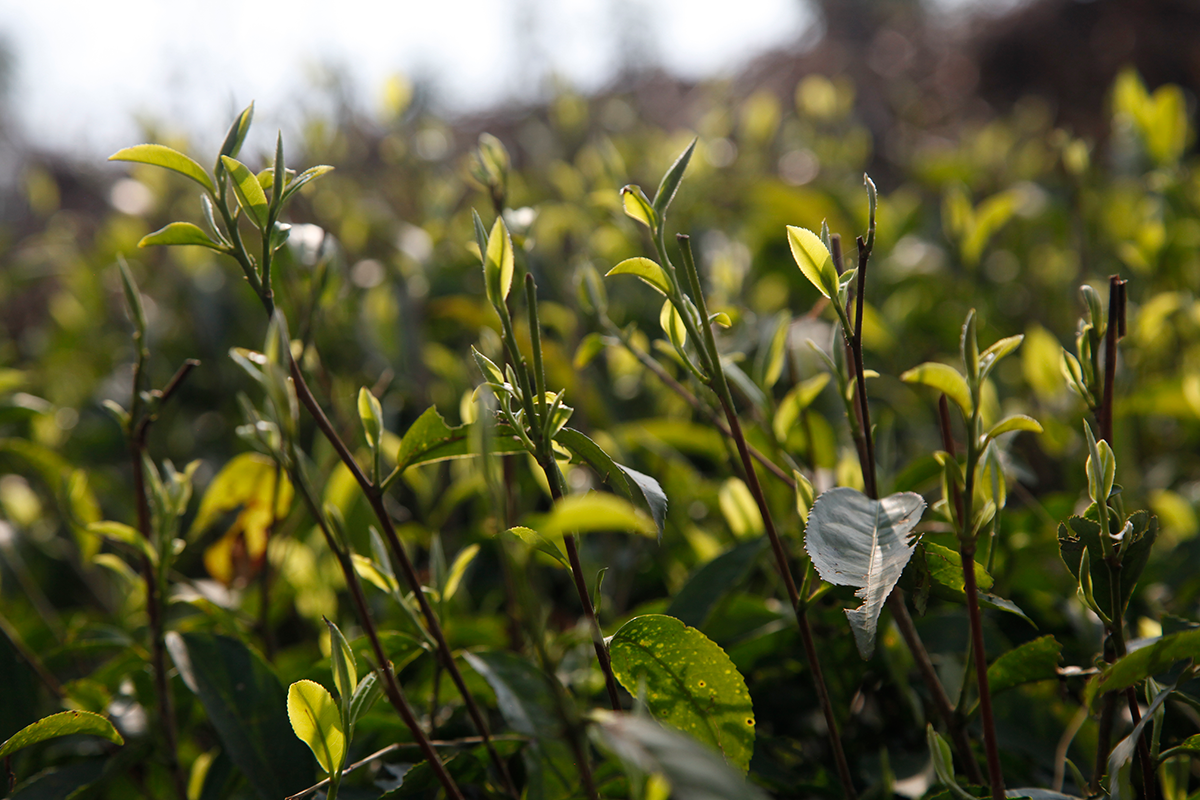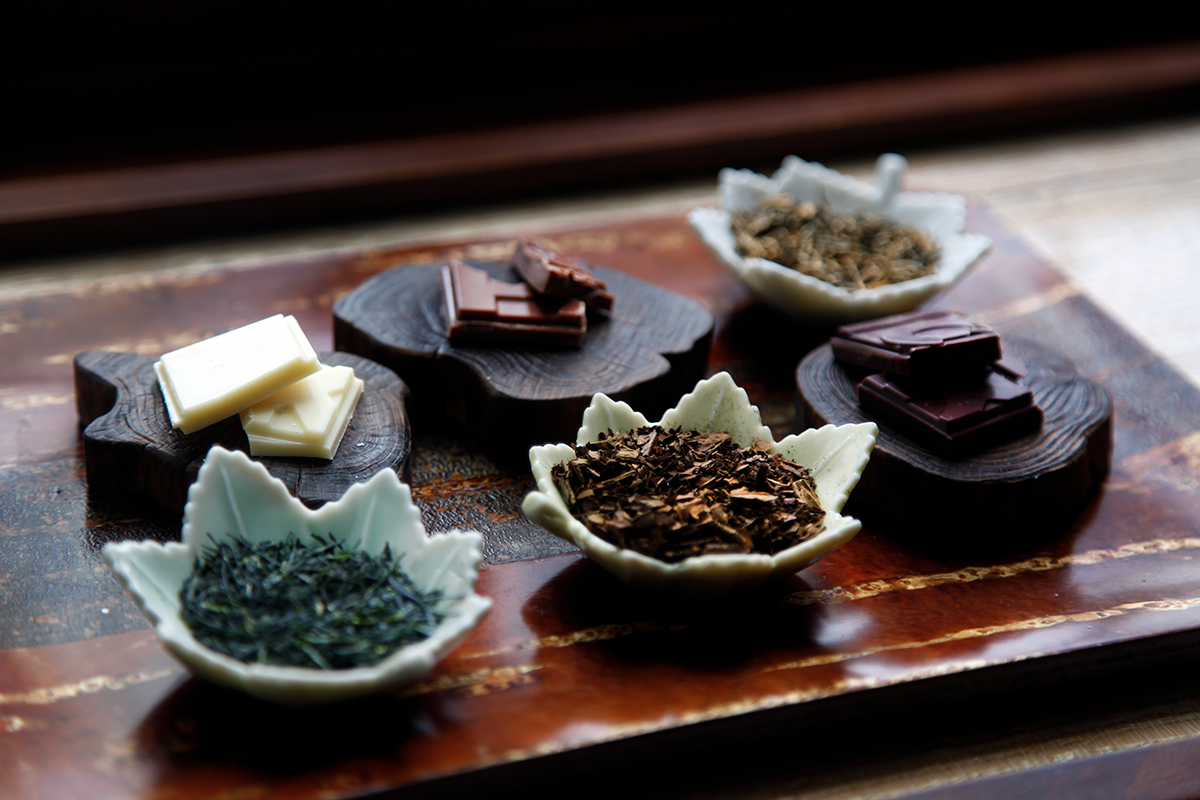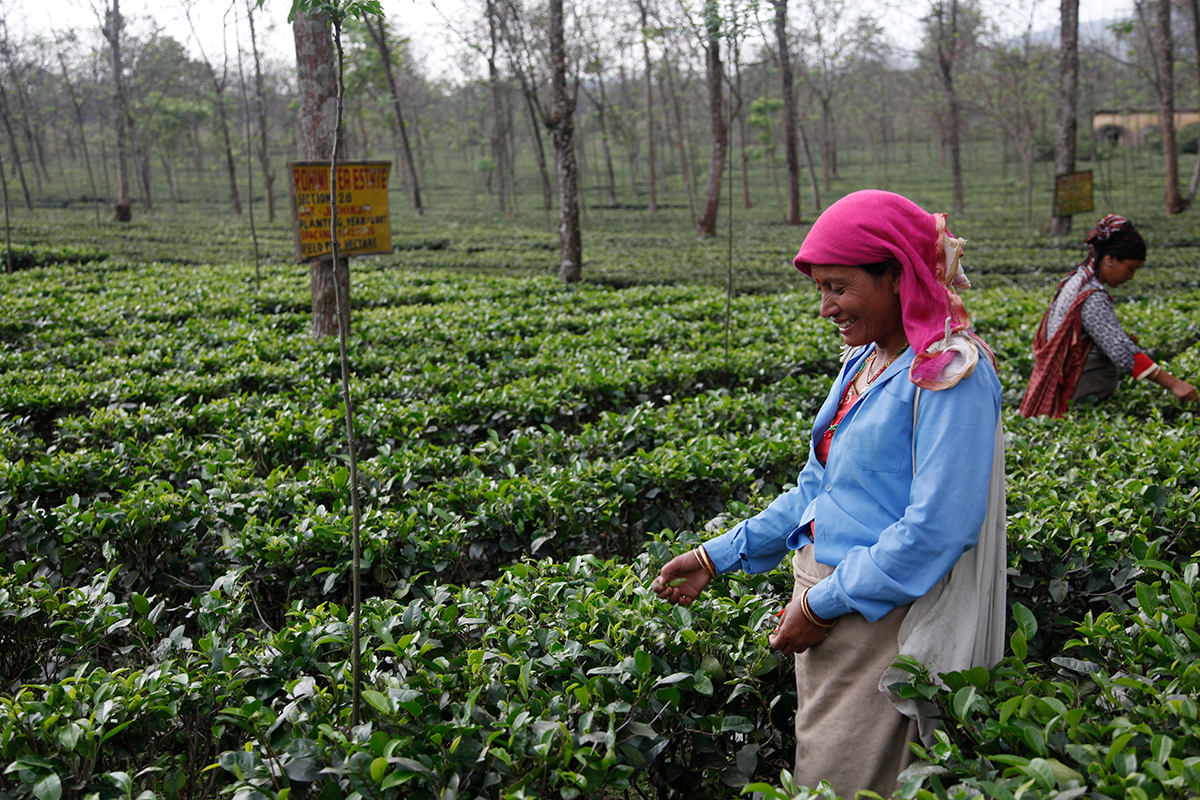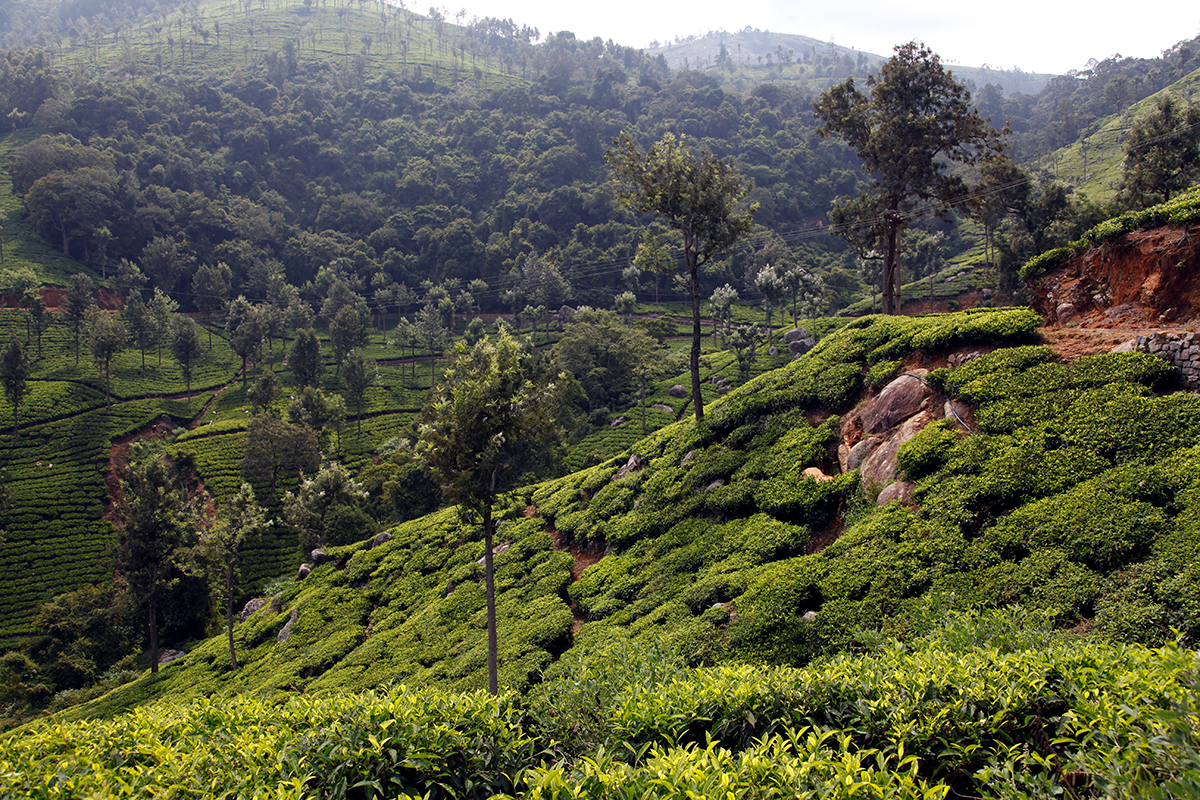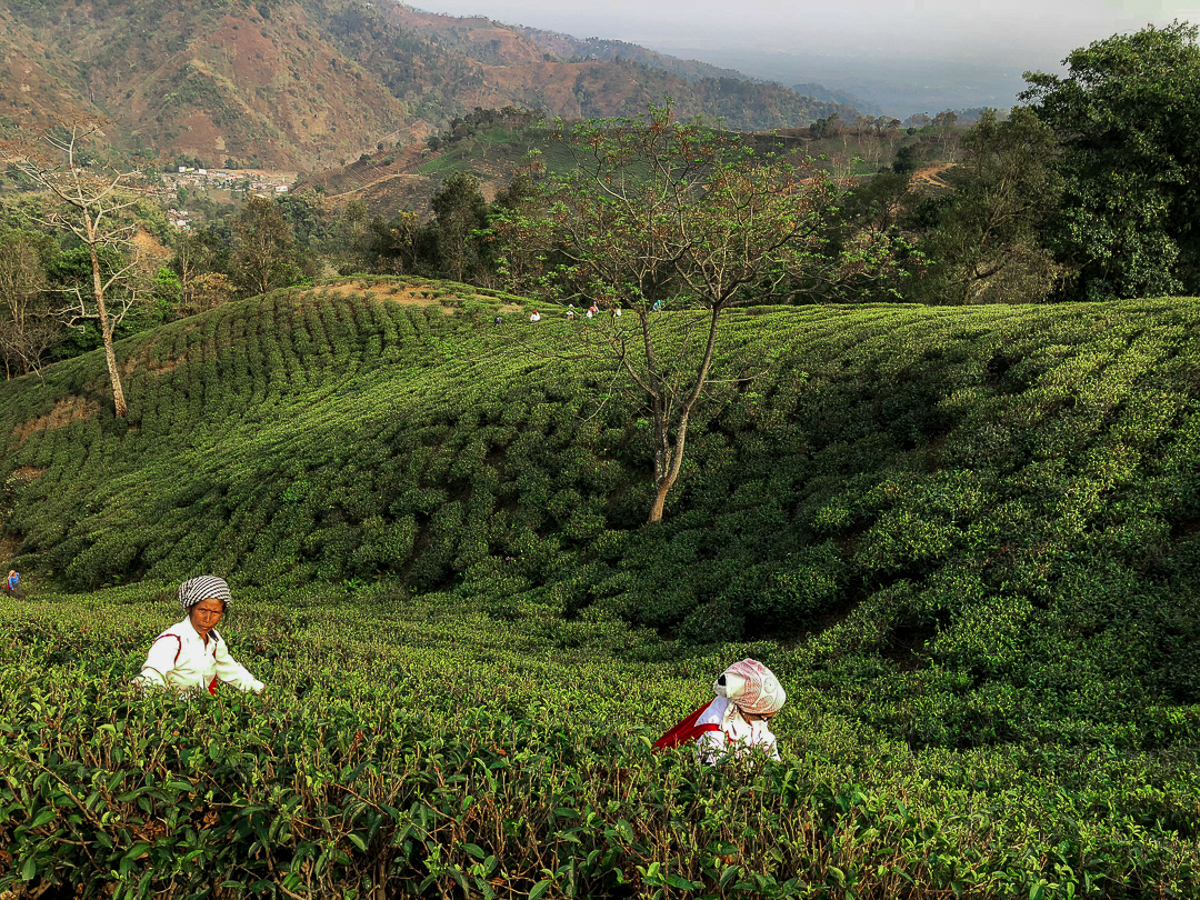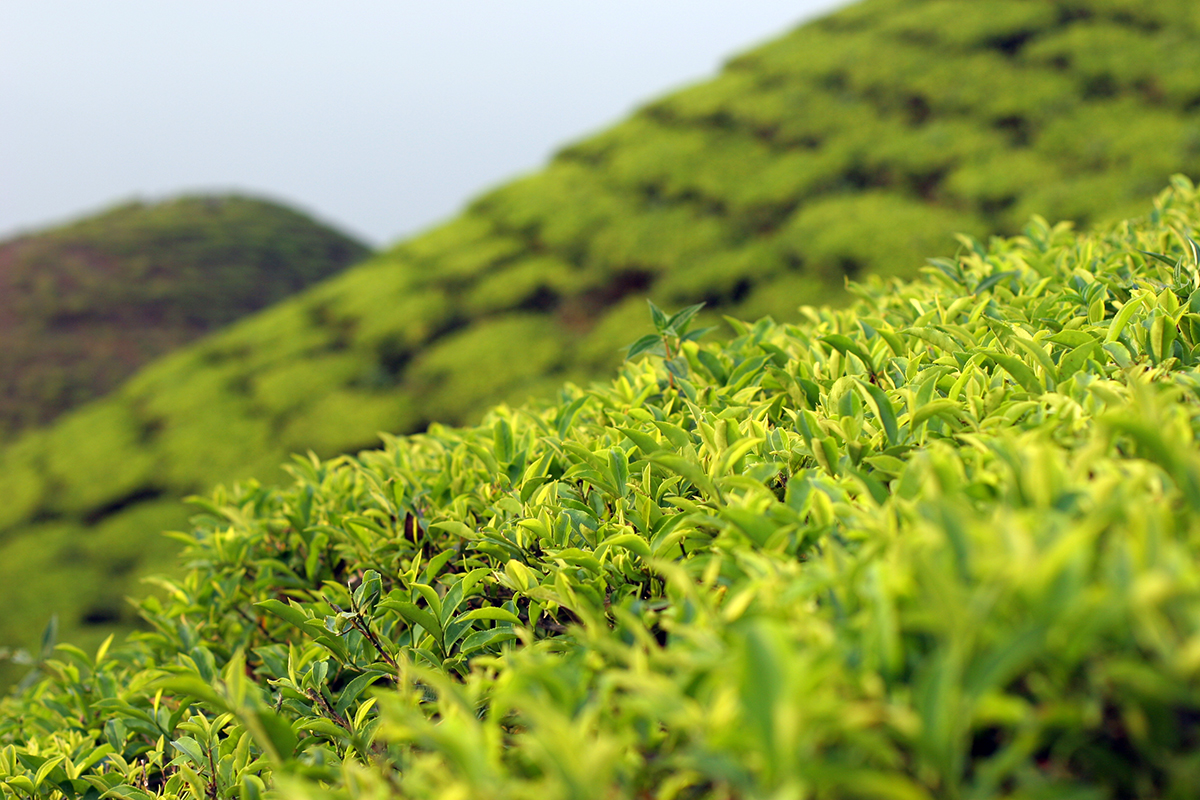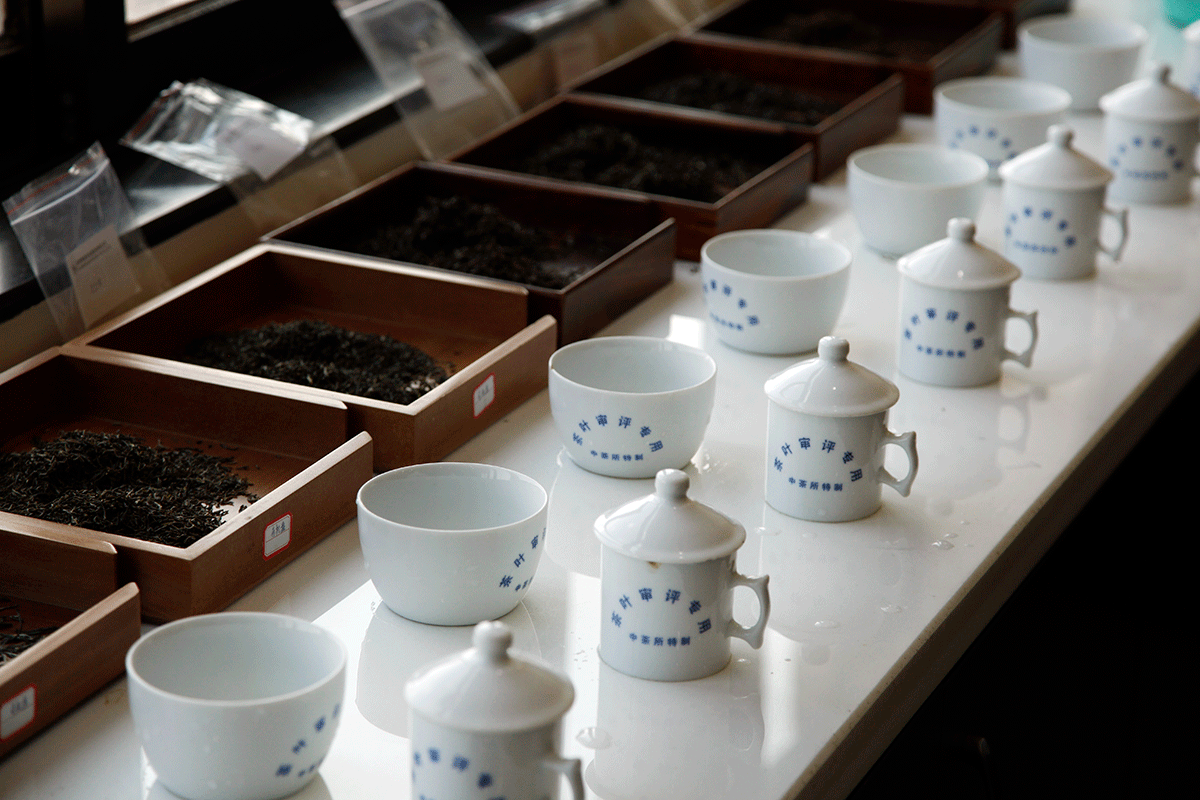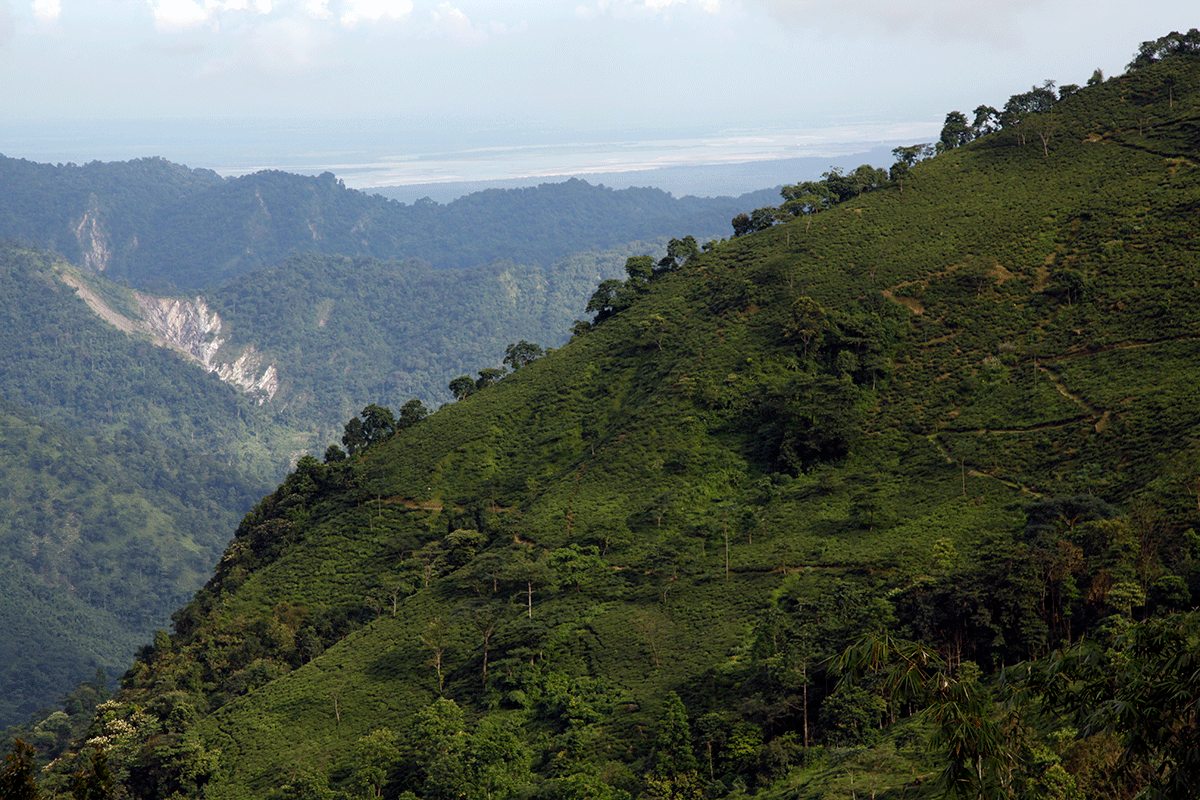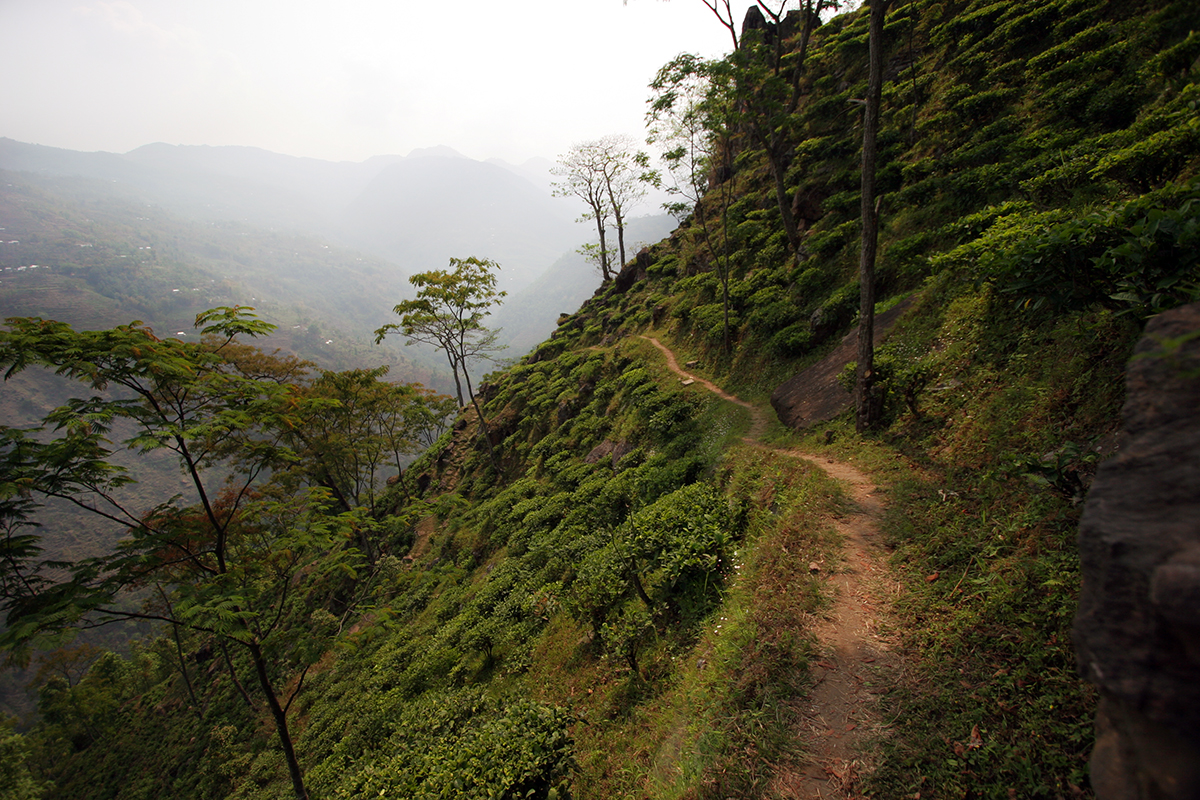I miss the roads of Nepal, the streets that run through mountain villages, the tracks that turn muddy in the rain then dry to dust after being baked by a fierce sun. The dust gets thrown up by Jeeps that honk at anything and everything on the road, chickens included, before speeding past. It settles on a roadside stall, causing the vendor to emerge from time to time to wave a feather duster about with little conviction, or perhaps throws a bucket of water over the road. I miss the villages with their colourful, loosely boarded houses, the smells and hubbub of the market, the people who smile at you, the burning incense, the vibrant simplicity. Then suddenly, the sound of the gong, which echoes across the valley from mountain to mountain.
SafeTea™, our safety system
Two weeks ago I promised you that a wonderful Rohini Early Spring would be arriving, and that it would be available after the obligatory food safety analyses. Sadly, we must wait a little longer. At Palais des Thés we follow our own special procedure, called SafeTea™, which guarantees that our teas meet the optimal food safety standards. We carry out random tests on our organically certified teas (AB label). For all other teas we sell, we ensure they comply with our standards by having them analysed by an independent laboratory. Our checks go beyond the legal requirements. But this does mean we have to wait a few days longer while the tests are being carried out, to ensure the safety of our teas.
Tea and chocolate, the perfect match
Green tea is a brilliant companion for white chocolate. You could choose a Gyokuro Hikari or a Genmaicha (a blend of tea and puffed rice). Japan also has the right teas to pair with milk chocolate or praline: its toasted teas such as shiraore kuki hojicha and bancha hojicha are ideal. And to match a refined dark chocolate, you could opt for a Qimen Mao Feng, a Jukro, a Premium Yunnan Buds or an Imperial Pu Erh.
When served to accompany chocolate, tea should not be boiling hot. It needs to rest a little so that the temperature isn’t too high compared with that of the chocolate. The perfect partnership is one in which each party brings out the best in the other. Here, tea complements chocolate, and chocolate enhances tea.
Rohini Early Spring, a premium tea from cultivar B157
In Darjeeling, tea grows at altitudes ranging from 100 to 2,100 metres. The lower-grown teas are harvested first, of course, because of the milder temperatures they enjoy. Remember, tea plants enter dormancy when daytime temperatures remain below 12°C.
I’ve just bought a batch of Rohini Early Spring. It’s a delicious tea, and it’s special too, not so much because of the location of the plantation, but because of the quality of the cultivar, B157 (Bannockburn 157). It’s also unusual in that the plot is entirely planted with this cultivar, whereas many sections on Darjeeling plantations are made up of a patchwork of different tea varieties. The planter – who is well aware that his garden isn’t among the best-known names – is hugely creative when it comes to developing rare teas. He really takes care with the processing part, adjusting every parameter (intensity of withering, rolling, oxidation, drying) until he obtains the exact liquor he wants. This is a wonderfully delicate premium tea with a powerful grassiness and intense freshness. It will be available around 22 March, following the necessary food safety tests.
While we wait for Darjeeling, here’s Kotagiri Frost
The teas of Southern India offer an interesting alternative to those in the north when the latter haven’t been able to grow due to lingering low temperatures. In the Nilgiri mountains, tea is produced in the Darjeeling style, and Kotagiri Frost is the best-known of these at the moment. In the cup, it reveals an intense green freshness that announces the arrival of spring. This premium tea will be available around 15 March, following the necessary food safety tests.
Darjeeling kicks off the season
Every year, Darjeeling kicks off the harvest season. 2021 should be the same, as long as Covid doesn’t force the Himalayan foothills into lockdown. The harvest should start, as usual, around the time of the Holi festival. After a dry winter (the last major rainfall was back in September), the tea plants are struggling. They need rain so that the buds, which are just waiting to grow, can turn into leaves.
Inventing a new profession
During a recent interview, a journalist remarked that Palais des Thés had created two new professions, something I’d never really considered before. It’s quite unusual to create a new type of job; I don’t know if many companies have had this experience. At Palais des Thés we have two roles that didn’t exist before us: tea researcher and tea sommelier. There are now two tea researchers on our team and we get contacted by many applicants who want to join us. And thanks to our diploma programme, 26 people can now call themselves a tea sommelier, which is to tea what the sommelier is to wine.
Something for every taste
Attitudes are changing and this makes me happy. In the early days of Palais des Thés, Chinese teas really divided our customers. Some loved them, others hated them based on the premise that all Chinese teas were smoked to a greater or lesser extent. There was a lot of misunderstanding surrounding them. Thirty years later, it’s such a pleasure to see how things have changed. Not only do many people now realise that not all Chinese teas are smoked, but we have also seen the rise in popularity of green, white, blue-green, yellow, dark and black teas from this country, the birthplace of tea.
Singbulli is changing hands
Tea plantations sometimes change hands, and this is important knowledge for tea researchers. The Singbulli garden (photo) in Darjeeling has just been sold. Who will be the next planter? What knowledge of tea will they have, and what production methods will they use? These questions show that you cannot rely on a garden’s name alone. The life of a tea estate evolves, and with it the quality of the teas it produces. Let’s hope that Singbulli continues to make the delicious teas to which we have become accustomed, such as those fine teas produced using cultivar AV2 and on the best plot: Tingling.
Around the mountainside
It will be another few months before we start returning to normal life, meeting up with friends and family, getting together for a cup of tea, a meal, a glass of wine. Meanwhile, this is the image that comes to mind when I think about the difficult times we’re going


